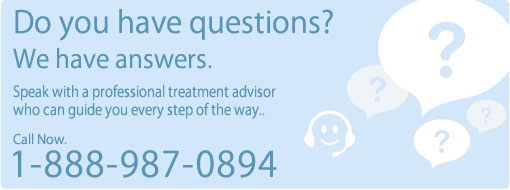Navigation

Help Me Find a Drug Rehab Center
Short-Term Drug Rehabs
The first step in a drug addiction treatment program is to break free from the dependency on the drug. This is achieved through detoxification. However, detoxification is not the only solution for long-term drug addiction. It only helps the patients get over the distressing physical symptoms that occur when the patient suddenly stops taking the drugs. For addictions due to opiates such as heroin or alcohol, rehabilitation is most effective when carried out in a medically supervised environment.
Short-Term Drug Rehabs What They Offer
Short-term drug rehab programs are opted for by those patients who cannot undergo a long and protracted rehab program due to various reasons. Short-term treatments are most recommended for first-time addicts who do not have a long history of drug dependency and those who have not involved themselves in criminal activities of any kind. They are also recommended for those addicts who need to be displaced from where they are surrounded by relapse triggers.
Short term drug rehabs generally provide treatment for a period of less than six months. Short-term drug therapy may typically include residential treatment wherein the patient has to reside with other addicts and substance abusers, medications to overcome accompanying physical and mental distress, and outpatient therapy which will require the patient to make regular visits to the drug treatment clinic for a variety of different programs.
Many of the short-term programs focus on brief and intensive treatment sessions which ultimately lead to stabilization of minor medical symptoms that accompany drug addiction. If the patient has serious medical conditions,the consulting medical specialist is likely to rule out a short-term treatment program. A major portion of the rehabilitation program is getting the addict to abstain from the substances of abuse. Medications such as Naltrexone and methadone may be used in this stage to treat addiction.
Counseling, 12-step program, cognitive therapy and psychotherapy, all form a part of short-term treatment that helps the patient to understand the cause of addiction. Classes and seminars are held to bring about positive changes in the lifestyle of the patient, give parenting instructions and family counseling, etc. Post-treatment referrals are provided and a continued follow-up on a regular basis is set up to help prevent a relapse.
There is no specified time when the patient can be said to be 'cured' of the addiction. It has, however, been observed that a threshold is generally reached in about 3 months' time for a majority of the patients.Significant improvement can be observed in the patient's condition after this period.To achieve a complete and full recovery, further treatment is required in most cases. This makes it clear that the time spent in short-term drug rehabs depends on the specific needs of every individual and the severity of the dependency on the substance abused.
Treatment sessions in short-term drug rehabs end with a commitment to meet a personal therapist or attend group meetings on a regular basis.
The following effects are commonly felt by addicts after completion of a short-term drug rehabilitation program:
There is a reduction or complete elimination of cravings for the drug. Addicts experience relief from the distressing symptoms that accompany addiction. They have increased energy levels and are more enthusiastic towards life. Their thoughts have more clarity and focus. They experience increased confidence and self-esteem.
Short-Term Drug Rehabs Disadvantages
In short-term rehabilitation programs, the addict takes more than a week to get accustomed to the routine at the rehab center and yet another week at completion in preparing to return home. Thus the treatment duration is in effect reduced by two weeks. It is, therefore, more fruitful to take up along-term drug addiction treatment if the outcome of the treatment program has to be successful.
Short-term treatments have become expensive for patients due to the fact that insurance coverage for substance abuse has been reduced to meeting expenses for about 14 days' treatment. This time span is simply not enough for a full recovery.
Scientific studies have pointed out that addiction is curable if the patient is exposed to quality intervention for a sufficient length of time. Some short-term drug rehabs are known to profess the 12-step traditional theory or 'drug addiction is an incurable disease' theory. It is important that the patient chooses a drug rehabilitation program of high quality that infuses correct beliefs that help him/her to overcome the drug addiction.
Summarizing, whatever be the type of rehab program chosen by the addict, a deep sense of personal commitment on the part of the addict is very essential to achieve long-term sobriety.
Category
- Drug and Alcohol Rehab Services
- Drug and Alcohol Rehabs
- Drug Detox / Alcohol Detoxification
- Methadone Detox
- Group Homes
- Hospital Inpatient Programs
- Outpatient Rehabs
- Partial Day Rehabs
- Residential Short-Term Rehabs (Less Than 30 Days)
- Residential Long-Term Rehabs (30 Days or More)
- Adolescent / Teen Rehab Centers
- Dual Diagnosis
- HIV / Aids Treatment Services
- LGBT Rehabs
- Senior Rehabs
- Rehabs for Expectant Mothers
- Women - Treatment Services
- Men - Substance Abuse Treatment
- Residential Beds Parents w/ Children
- Dui/Dwi Clients
- Criminal Justice Client Rehabs
- Self Pay
- Medicaid Accepted
- Medicare Accepted
- State Insurance
- Private Health Insurance
- Rehabs that Accept Tricare
- Access To Recovery Voucher
- Sliding Fee Scale Accepted
- Rehabs with Payment Assistance
- Hearing Impaired Rehab Services
- Spanish Treatment Services
- Other Languages